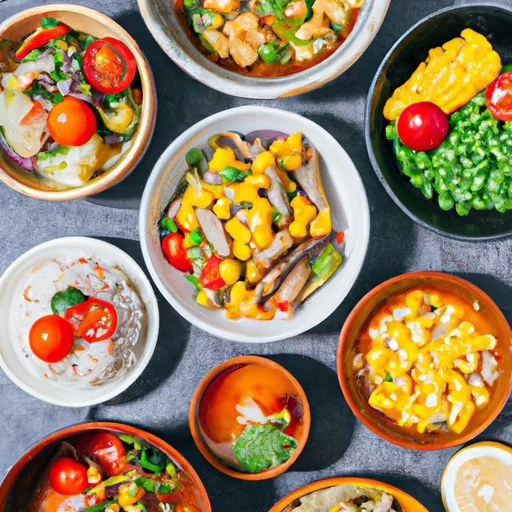How to Incorporate More Plant-Based Meals into Your Diet
If you’re looking to improve your health and reduce your carbon footprint, incorporating more plant-based meals into your diet is a great place to start. Plant-based diets have been shown to lower the risk of chronic diseases and promote overall well-being. Here are some tips to help you make the transition to a more plant-based diet.
Start Slow
Transitioning to a plant-based diet can seem overwhelming, but it doesn’t have to be. Start by incorporating one plant-based meal a day, such as a hearty salad or veggie stir-fry. This will help you gradually get used to eating more plant-based foods and make the transition easier.
Explore New Recipes
Read also: Stay Fit Without a Gym Membership: Easy Ways to Stay Active
One of the best ways to incorporate more plant-based meals into your diet is to explore new recipes. There are countless plant-based cookbooks, websites, and blogs that offer delicious and creative plant-based recipes. Try experimenting with different ingredients and flavors to keep things interesting.
Focus on Whole Foods
When incorporating more plant-based meals into your diet, it’s important to focus on whole foods. This means choosing foods that are minimally processed and as close to their natural state as possible. Fruits, vegetables, whole grains, legumes, nuts, and seeds should be the foundation of your plant-based meals.
Get Creative with Substitutions
Read also: Boost Mental and Physical Health with Walking: Key Benefits
One of the keys to successfully incorporating more plant-based meals into your diet is to get creative with substitutions. For example, you can use tofu or tempeh instead of meat in stir-fries, or use cashew cream instead of dairy in creamy pasta dishes. Experimenting with different substitutions can help you discover new favorite plant-based meals.
Plan Ahead
Planning ahead is essential when incorporating more plant-based meals into your diet. Take some time each week to plan out your meals and make a grocery list. This will help you stay organized and ensure that you have all the ingredients you need to make delicious plant-based meals throughout the week.
By following these tips and gradually incorporating more plant-based meals into your diet, you can enjoy the numerous health benefits of a plant-based diet while discovering delicious new flavors and recipes.
Why should I add plant-based meals to my diet?
Adding plant-based meals to your diet can have numerous health benefits, such as reducing the risk of chronic diseases, improving digestion, and increasing energy levels. It is also a more sustainable and eco-friendly way of eating that helps reduce your carbon footprint.
How can I easily incorporate plant-based meals into my diet?
1. Start by making small changes
Instead of completely overhauling your diet, try incorporating one plant-based meal a day or swapping out a meat-based ingredient for a plant-based alternative. This gradual approach can help make the transition easier.
2. Experiment with different plant-based ingredients
Try incorporating a variety of fruits, vegetables, legumes, nuts, and whole grains into your meals to ensure you are getting a diverse range of nutrients. Experiment with different flavors and cooking methods to keep things interesting.
3. Find plant-based recipes you enjoy
Look for plant-based recipes online, in cookbooks, or from friends and family members. Find dishes that you enjoy and make them a regular part of your meal rotation. Forks Over Knives is a great resource for plant-based recipes and meal ideas.
4. Make plant-based swaps
Instead of meat, try using tofu, tempeh, or seitan as a protein source. Replace dairy products with plant-based alternatives like almond milk, coconut yogurt, or cashew cheese. These swaps can help make your meals more plant-based friendly.
5. Plan ahead and be prepared
Take some time to plan your meals for the week and make sure you have the necessary ingredients on hand. Preparing plant-based meals ahead of time can help you stay on track and avoid reaching for convenience foods when you’re hungry.

